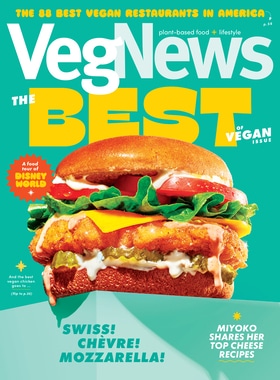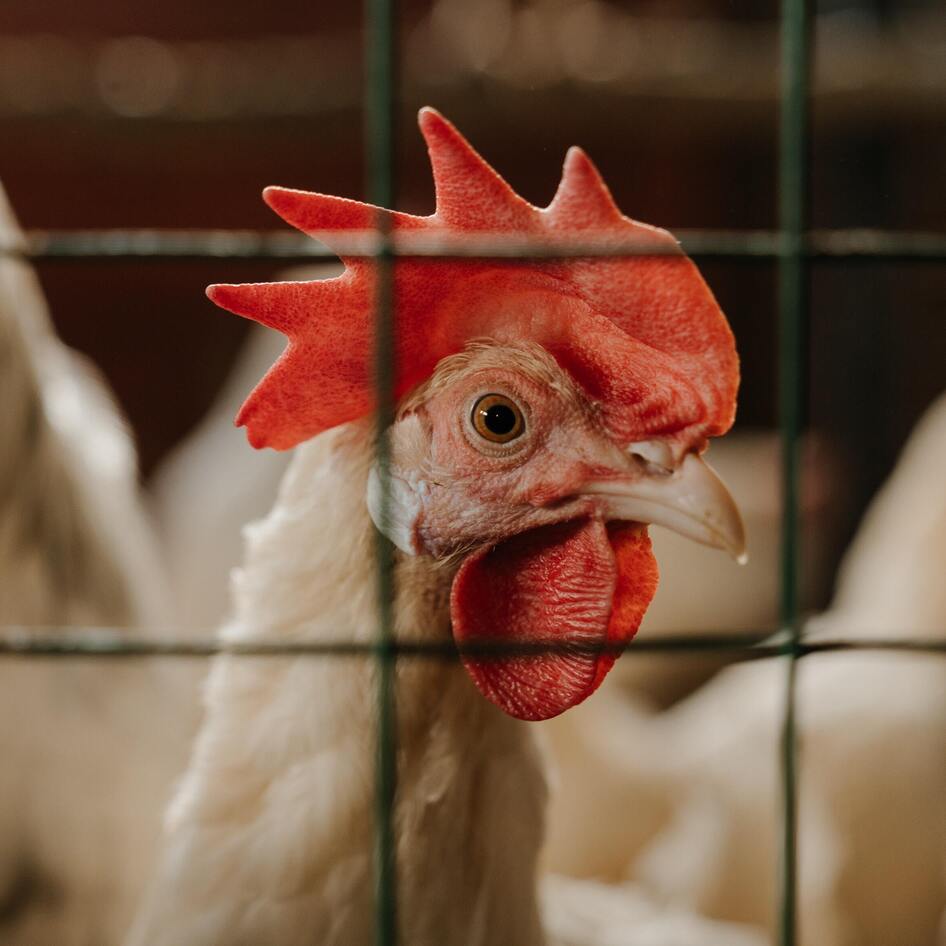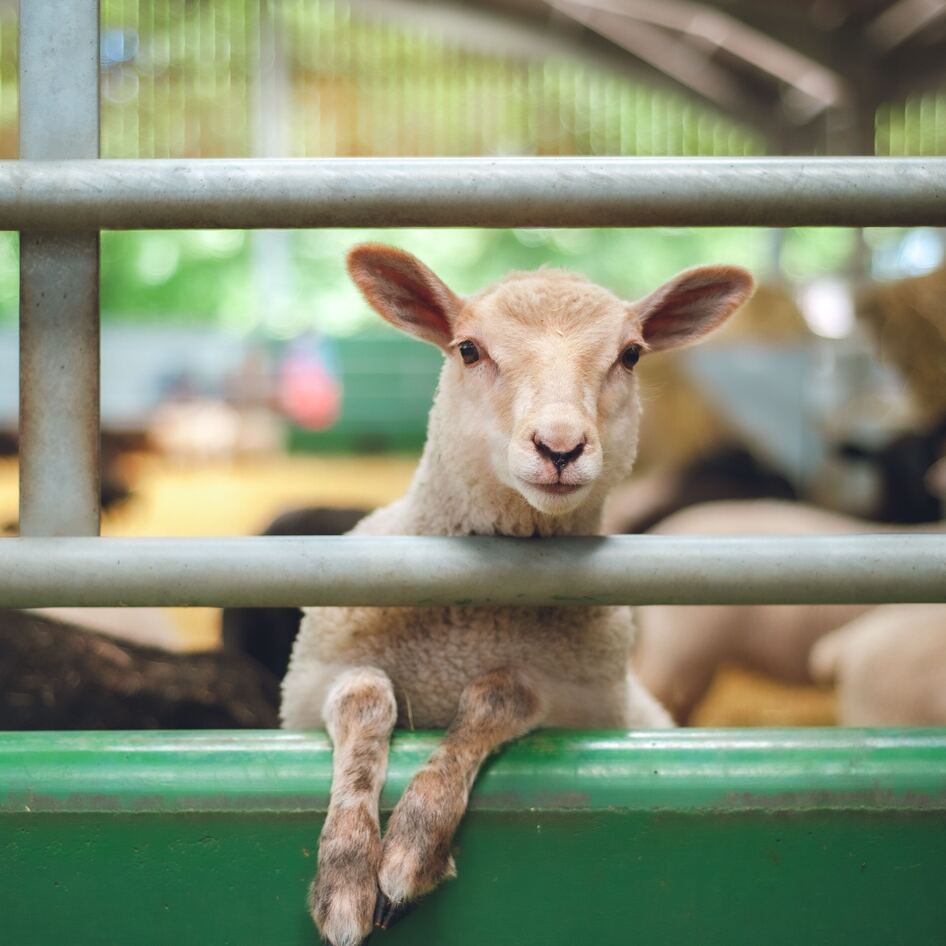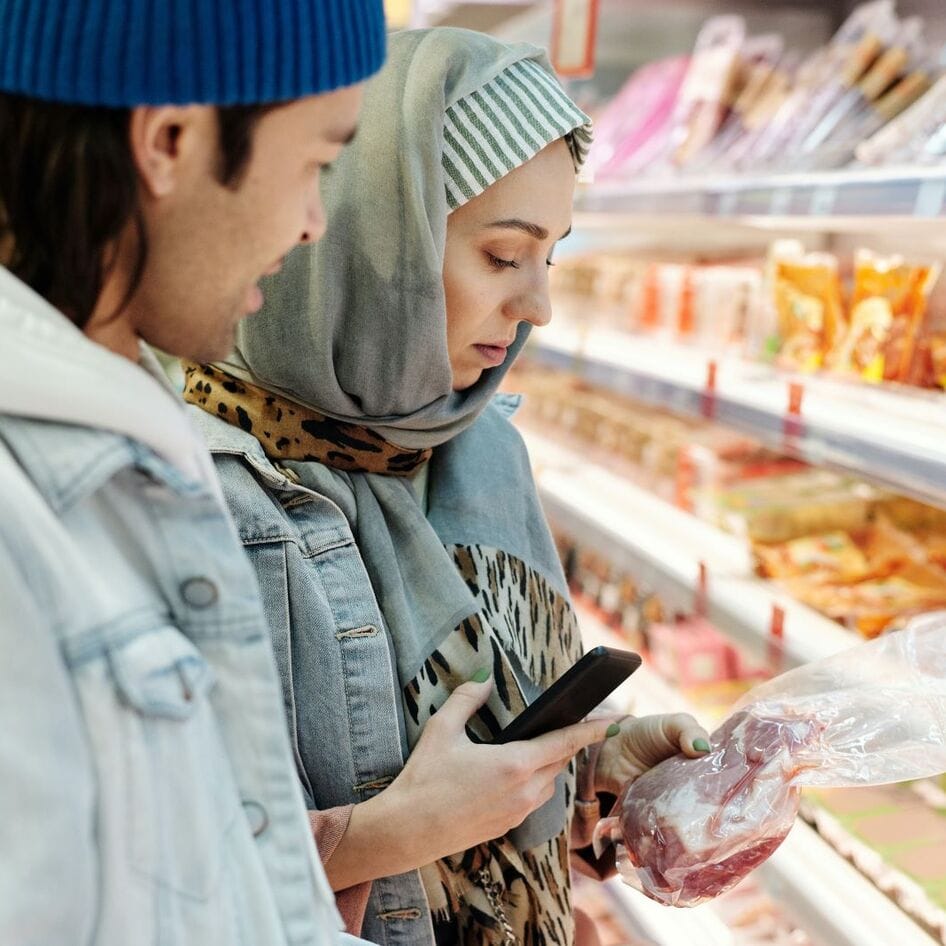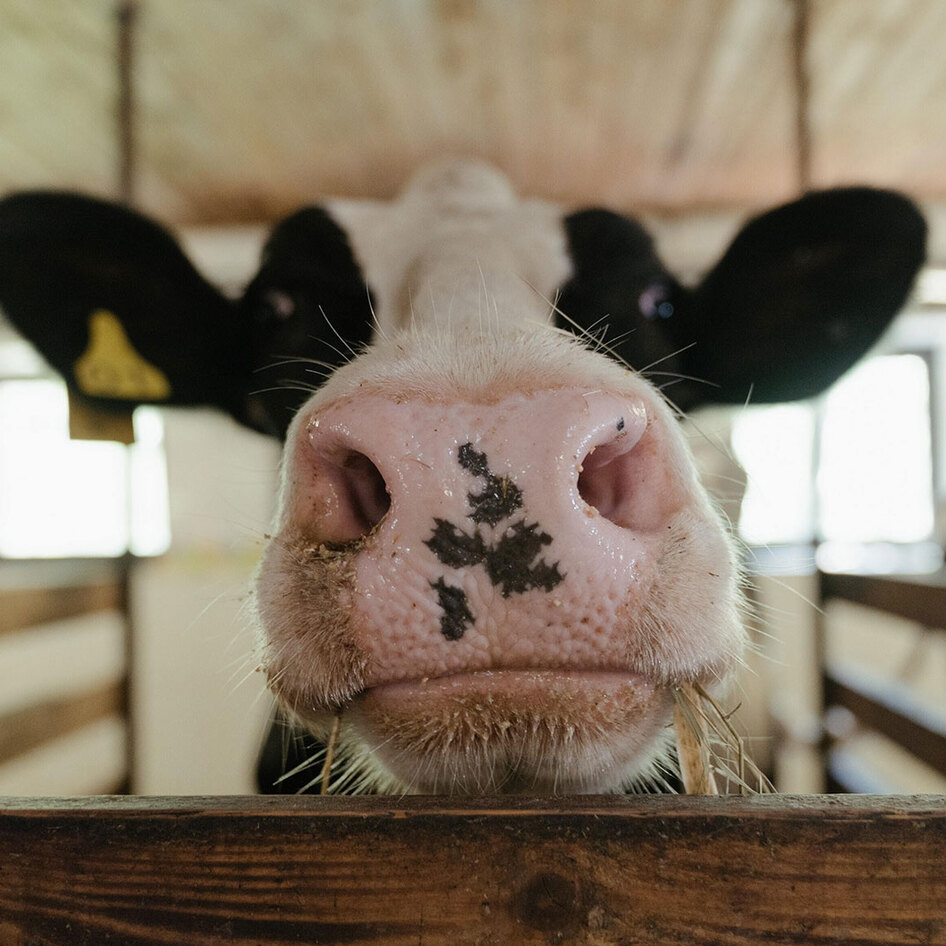“Grass-fed,” “organic,” “free-range,” and “pasture-raised” are four labels you’ll often see on animal products that claim to be better for us, the animals, and the planet. But what do these claims mean? Do they guarantee that animals are well-cared for, and raised in an ethical, sustainable way? Research suggests it’s unlikely. Instead, labels like this just seem to be propping up destructive and exploitative meat, dairy, and egg industries. Here’s more about why they exist, and why they might not be as ethical as they imply.
Cognitive dissonance and animal products
Most people are animal lovers. In the US, nearly 90 million homes are shared with a companion animal, like a dog or a cat, and most Americans see their furry friends as another family member. In fact, in July 2023, one study from Pew Research Center noted that around half of the people with companion animals in the US say they are as much a part of the family as the human members.
And yet, most Americans also eat animals. Nearly 90 percent of people in the US include meat in their diet, research suggests. This is despite the fact that farm animals, like pigs, are intelligent, playful, and inquisitive—just like dogs.
The fact that many people can cherish one animal and eat another largely comes down to societal conditioning. We see animal products in wrapped packages on grocery store shelves, but most of us never see the process that got them there, which likely involved a cramped factory farm and a slaughterhouse. In 2018, one Alliance for Science survey found that nearly 50 percent of Americans rarely seek information about how their food is produced.
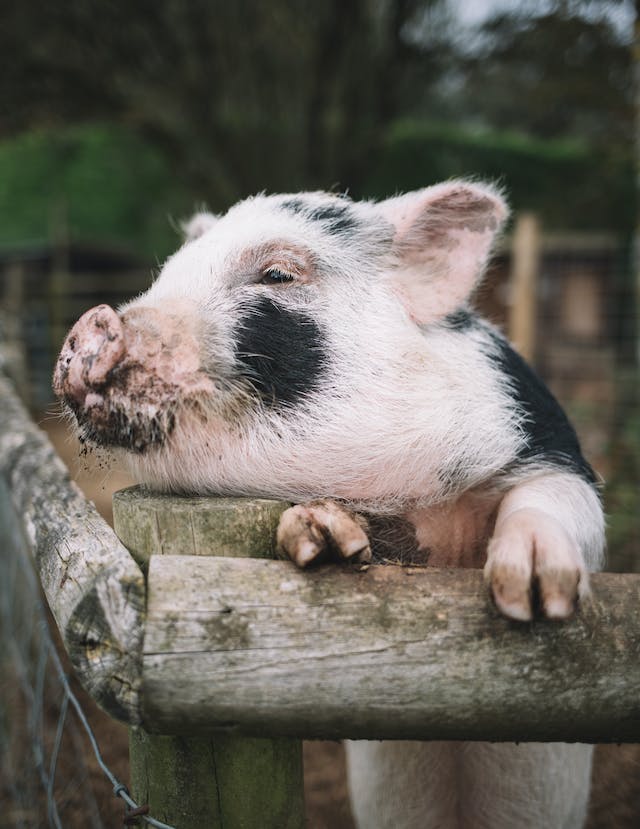 Pexels
Pexels
But while many try to avoid it, sometimes, it’s hard to avoid thinking about the fact that meat comes from animals. And this is when cognitive dissonance kicks in. According to Psychology Today, this “is a term for the state of discomfort felt when two or more modes of thought contradict each other.”
To deal with the cognitive dissonance that results from being an animal lover and also eating them, some might go vegetarian or vegan. But others might seek out reassurance that the animals or the planet aren’t really suffering that much. Enter: clever labeling.
Can meat ever really be ethical?
The term “pasture-raised,” for example, is often seen as an indicator that a cow has been treated ethically. But while a cow might be raised in a pasture, instead of a factory farm (where 99 percent of farm animals are raised), or a chicken might be given access to the outside (as is the case with free-range hens), neither of these things takes away the fact that the animals will be killed for the dinner table. In the wild, cows can naturally live up to 20 years, but a cow raised for beef will typically be slaughtered before the age of four.
“Using animals for food raises ethical concerns,” Monica Chen, executive director of the New Roots Institute tells VegNews. The nonprofit, which used to be called the Factory Farming Awareness Coalition, is dedicated to ending factory farming in the US through education. “It involves treating sentient beings as property,” she continues. “Disregarding their inherent value and right to life.”
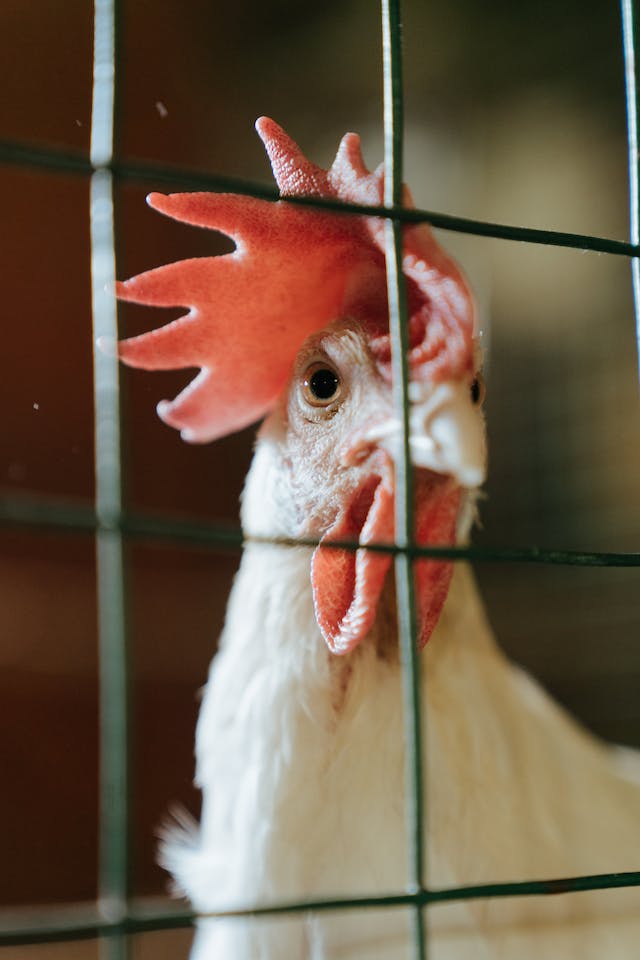 Pexels
Pexels
In the egg industry, the term “free-range” is misleading, too. Even “high welfare” chicken farms, like the one announced by Kipster and Kroger last year, still treat animals like commodities.
“Animals have their own interests in living free from exploitation, pain, and suffering,” adds Chen. “Consumers should understand that most animal products originate from systems that prioritize profit over animal welfare. Even terms like ‘free-range’ or ‘organic’ do not address the fundamental issue of exploiting animals for food.”
And they don’t address many of the environmental issues, either.
What about sustainability?
Animal agriculture has a monumental impact on the planet; it contributes around 14.5 percent of annual emissions (that’s significantly more than the aviation industry, which emits 2 percent) and drives deforestation and habitat destruction.
But by opting for “grass-fed” or “organic” animal products, many believe they are choosing food that is better for the environment.
True Food Kitchen, for example, which has more than 40 restaurants in the US, announced Verde Farms as its grass-fed, organic beef partner in 2023. “True Food Kitchen carefully selected Verde to be our partner for certified organic ground beef because they believe that food sourced the right way is better for the guest, the environment, and the creatures that inhabit it,” Kevin Quandt, the chain’s senior vice president of supply chain and sustainability, said.
In September last year, organic food brand Organic Valley also launched a new campaign to protect small organic family farms and claimed that its organic dairy farms produce 24 percent less greenhouse gas emissions than conventional dairy farms.
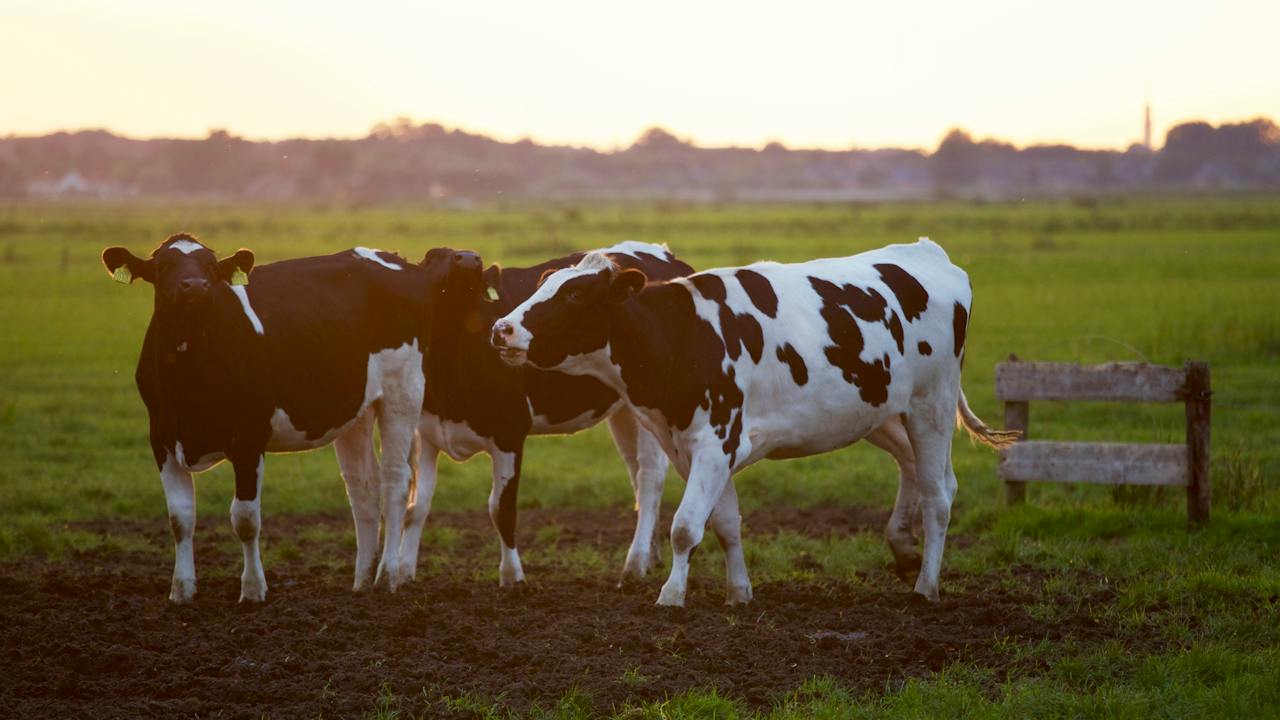 Pexels
Pexels
However, some research suggests that many organic and grass-fed products may not actually be better for the environment at all.
In 2020, one analysis found that only organic pork was slightly better for the environment than its conventionally farmed counterpart. In the case of organic chicken, the meat is actually worse for the planet than conventionally farmed chicken. And for beef and lamb, the study found a similar climate impact for organic and conventionally farmed.
“We expected organic farming to score better for animal-based products but, for greenhouse gas emissions, it actually doesn’t make much difference,” Maximilian Pieper of the Technical University of Munich, told The Guardian.
Some researchers have also rejected the claim that grass-fed beef, which comes from cows who have spent most of their lives on pasture eating grass, is better for the planet than factory-farmed beef.
“Grazing livestock are net contributors to the climate problem, as are all livestock,” Tara Garnett, PhD, of The Food Climate Research Network told the University of Oxford in 2018. “Rising animal production and consumption, whatever the farming system and animal type, is causing damaging greenhouse gas release and contributing to changes in land use.”
To deal with cognitive dissonance, choose plants
Many experts now advocate for a plant-based food system for the planet. “This analysis confirms the high costs that animal-source foods have for the planet,” Marco Springmann, PhD, of the University of Oxford said, speaking to The Guardian about the organic meat study.
“The policy implications are clear: applying an emissions price across all sectors of the economy, including agriculture, would provide a consistent and much-needed incentive to change towards healthier and more sustainable diets that are predominantly plant-based,” he added.
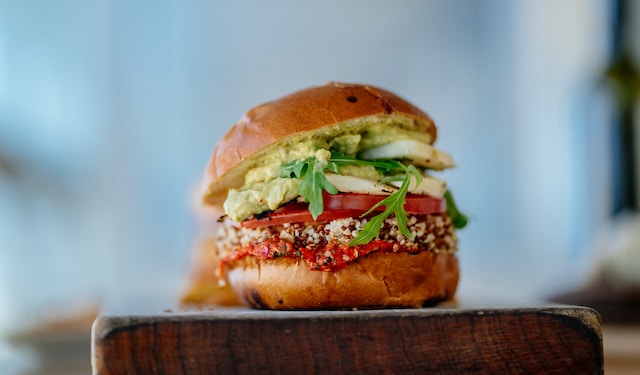 Unsplash
Unsplash
In 2022, one study from the University of Bonn also concluded that rich countries must cut their meat consumption by 75 percent to meet climate targets. In 2018, one of the biggest food production studies ever noted that going vegan was the single biggest way a person could reduce their impact on the planet.
It’s also the single biggest way to help the animals, too. Every year, billions of animals are raised in cramped, industrialized factory farms, before they are sent to the slaughterhouse, for the food industry.
So if you’re dealing with cognitive dissonance, it makes sense to stick with plants. “It’s essential for consumers to recognize the inherent ethical concerns within animal agriculture and consider alternative choices that align with ethical and compassionate values,” says Chen.
For more on meat and ethics, read:
JUMP TO ... Latest News | Recipes | Guides | Health | Shop
